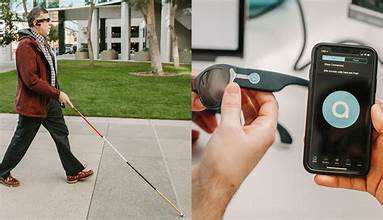Two Emirati graduates, Abdallah Al-Serkal and Ahmad Yousef, have developed a groundbreaking AI tool that provides a new means of communication for people with speech impairments, especially those affected by stroke or paralysis. Their innovation features an AI-powered avatar that acts as a “digital voice,” translating users’ thoughts into spoken words to foster natural and meaningful interactions.
Project Development and Motivation
This project began as a university lab assignment, evolving over two years with encouragement from professors who saw the potential to address real-world challenges. Abdallah Al-Serkal, now pursuing a Master’s degree at RIT Dubai, explains how the tool interprets brain and eye signals to generate language. This transformation of thought into speech has the potential to significantly improve the quality of life for patients with communication barriers.
How the Technology Works
Using electroencephalography (EEG) and electrooculography (EOG) technology, the AI system detects brain and eye signals. Electrodes placed on the scalp capture neural patterns, which are then converted into essential words through machine learning. The AI avatar dynamically delivers these words to provide a realistic and personalized communication experience.
Training and Vocabulary Selection
Before using the tool, each patient undergoes a brief training period where they think about specific words while wearing the EEG equipment. This step helps the AI adapt to the unique neural signals of the user. The AI currently interprets 10 essential words related to patient needs, such as “help,” “pain,” and “sleep,” with an impressive 90% accuracy rate.
University Support and Future Prospects
The project has received strong backing from RIT Dubai, with plans to integrate it into a new health informatics program. Associate Professor Dr. Jinane Mounsef emphasizes the university’s commitment to fostering innovations that combine technical expertise with practical applications, highlighting this AI tool as a prime example.
A Step Forward in Assistive Technology
This UAE-made AI tool demonstrates the powerful potential of technology to create inclusive solutions, offering renewed hope for individuals facing severe speech impairments. By bridging communication gaps, this tool marks a significant advancement in assistive healthcare technology.

